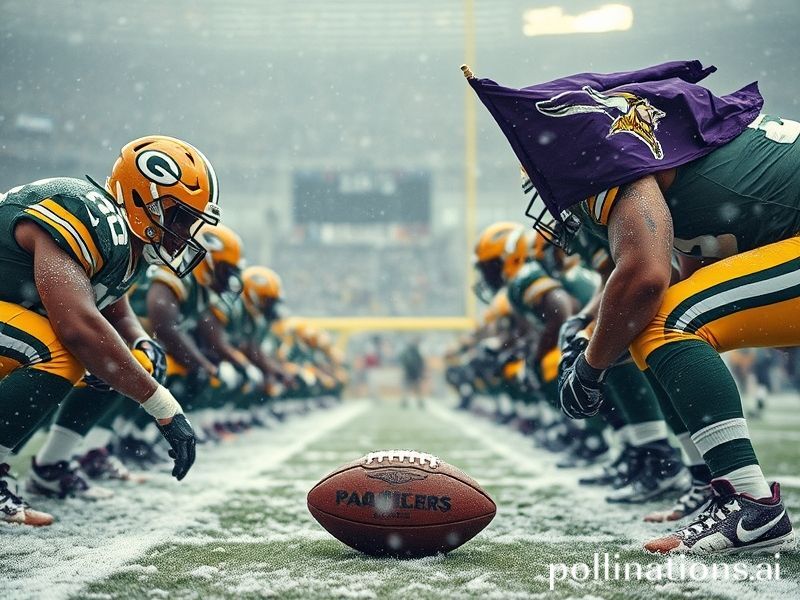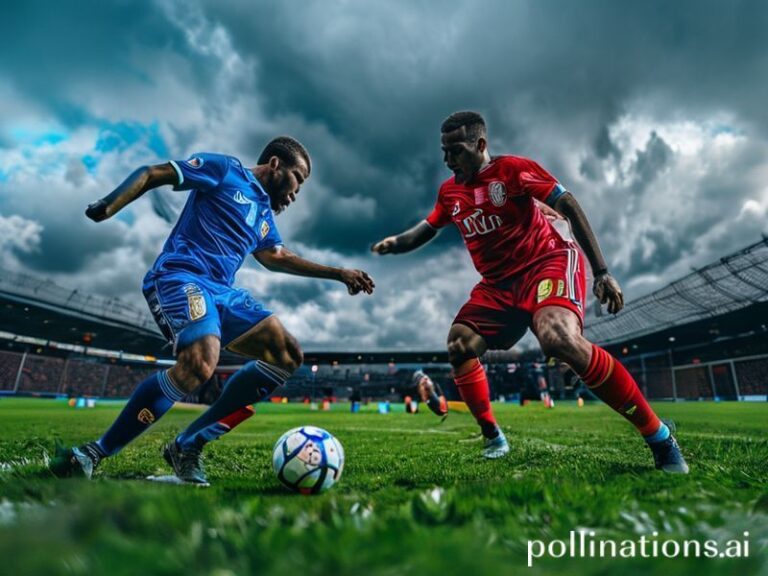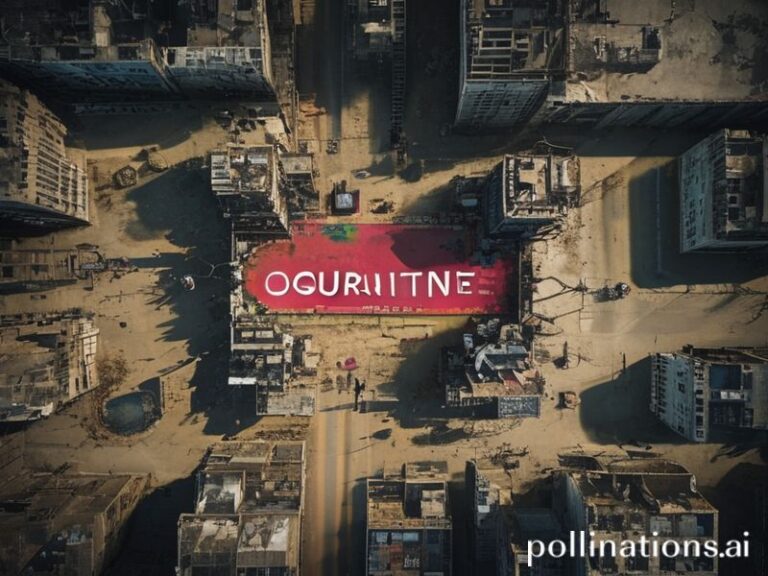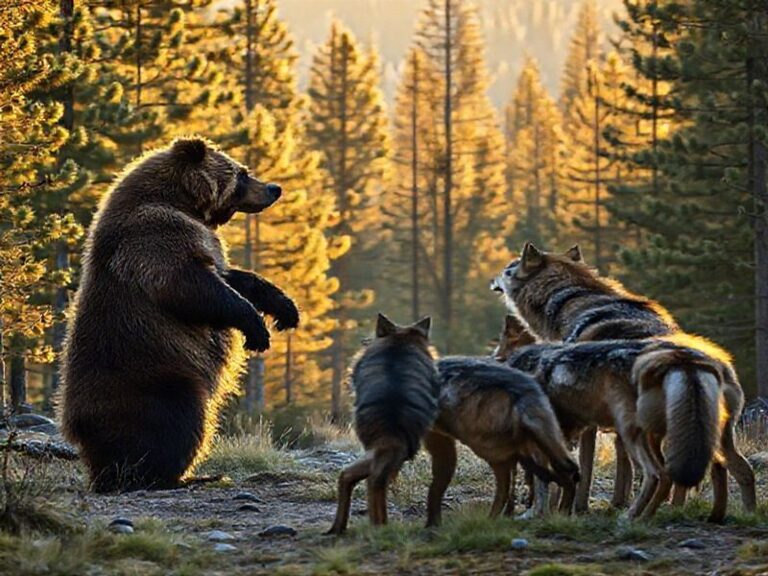Frozen Assets: How the NFC North Became the World’s Most Absurd Export
From the banks of the Mekong to the back alleys of Marseille, the phrase “NFC North” sounds like a cold-weather banking syndicate rather than a quadrant of American gladiatorial theatre. Yet here we are, in a year when even the Arctic Circle is on fire, watching four Midwestern franchises try to convince a planet drowning in streaming options that their regional blood-feud still matters. Allow me, your jet-lagged correspondent, to translate the geopolitical tremors emanating from Green Bay, Minneapolis, Chicago, and Detroit—four cities whose combined GDP could buy Luxembourg but whose football teams can’t always buy a first down.
Let’s start with Green Bay, Wisconsin, population just north of a Reykjavík suburb, owning a franchise that is technically communism with cheese. The Packers are the only fan-owned major sports team on Earth, which means 537,460 shareholders get to vote on things like jumbotron font size while the rest of the world wonders how a town that small still fields a competitive squad. When the Packers win, global capitalism briefly pretends cooperative ownership is viable; when they lose, Davos breathes easy and returns to privatizing oxygen. Last season’s Jordan Love experiment was less a quarterback controversy than a controlled demolition of small-town mythmaking. The world tuned in, shrugged, then went back to watching K-dramas.
Meanwhile, in Minneapolis, the Vikings continue their multi-decade quest to disappoint on a scale so consistent it could be franchised like a Swedish furniture outlet. Their loss to the Eagles in last year’s playoffs—after leading by 10 with 7:11 left—was watched in real time by U.S. troops stationed in Djibouti, who reportedly turned to one another and said, “Well, at least we’re only dodging missiles.” Kirk Cousins, a man whose facial expression suggests he’s perpetually smelling reheated fish, is now tasked with selling hope to a fanbase that has witnessed more heartbreak than a Greek shipping magnate’s dating history. The Vikings’ new regime promises “analytics-driven decisions,” which in international translation means they’ll lose in seven languages.
Chicago, bless its deep-dish heart, offers the Bears, a franchise so historically allergic to competent quarterbacking that fans now celebrate moral victories like a failed state lauds a functioning post office. The Bears’ acquisition of Caleb Williams—a quarterback so hyped he could balance the yen—has triggered a wave of civic optimism not seen since the last time the city promised the Olympics were “definitely doable.” Globally, the Bears serve as a cautionary tale: no amount of skyline, jazz, or artisanal hot dogs can compensate for an offensive line that folds faster than a cryptocurrency exchange. When Chicago wins, the city’s murder rate drops 0.7 percent; when they lose, the futures market in Italian beef futures tanks. Correlation? Ask the algorithm.
And finally, Detroit—city-phoenix risen from ashes so often it qualifies for frequent-flier miles. The Lions’ ascendance under Dan Campbell, a coach who looks like he eats glass for fiber, has become a geopolitical anomaly: a Rust Belt narrative that isn’t about despair. Last season’s NFC Championship loss to San Francisco was streamed live in Ukrainian bomb shelters, where soldiers reportedly nodded in grim recognition—so close, so far. Detroit’s success is being studied by urban planners from Lagos to Lahore as proof that even post-industrial wastelands can field a playoff defense. The catch, of course, is that the Lions still have to play the last five minutes of any meaningful game, a psychological Waterloo that transcends borders.
What does it all mean for the wider world? Simply this: while European leagues flirt with Super League breakaways and FIFA sells the World Cup to the highest desert, the NFC North remains a stubborn, frostbitten reminder that tribal loyalty still trumps reason. These four teams export nothing tangible—no cobalt, no microchips—but they do ship metric tons of existential dread and fleeting joy to diaspora bars from Sydney to São Paulo. In an era when nations can’t agree on carbon limits, the NFC North still argues about a 1925 title the league retroactively awarded to the Cardinals. Humanity may not survive the century, but rest assured someone in Bangkok will wake up at 3 a.m. to watch the Bears lose on a missed field goal.
And that, dear reader, is the most honest trade balance we have left.







